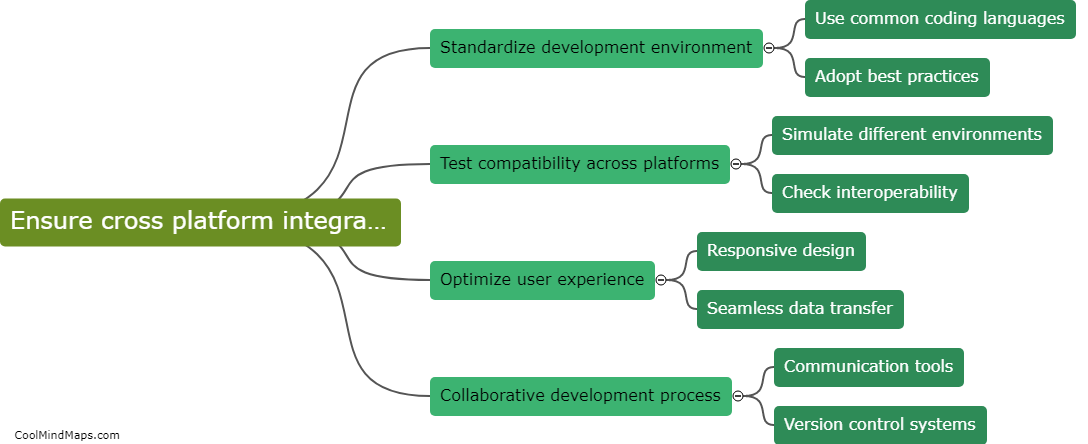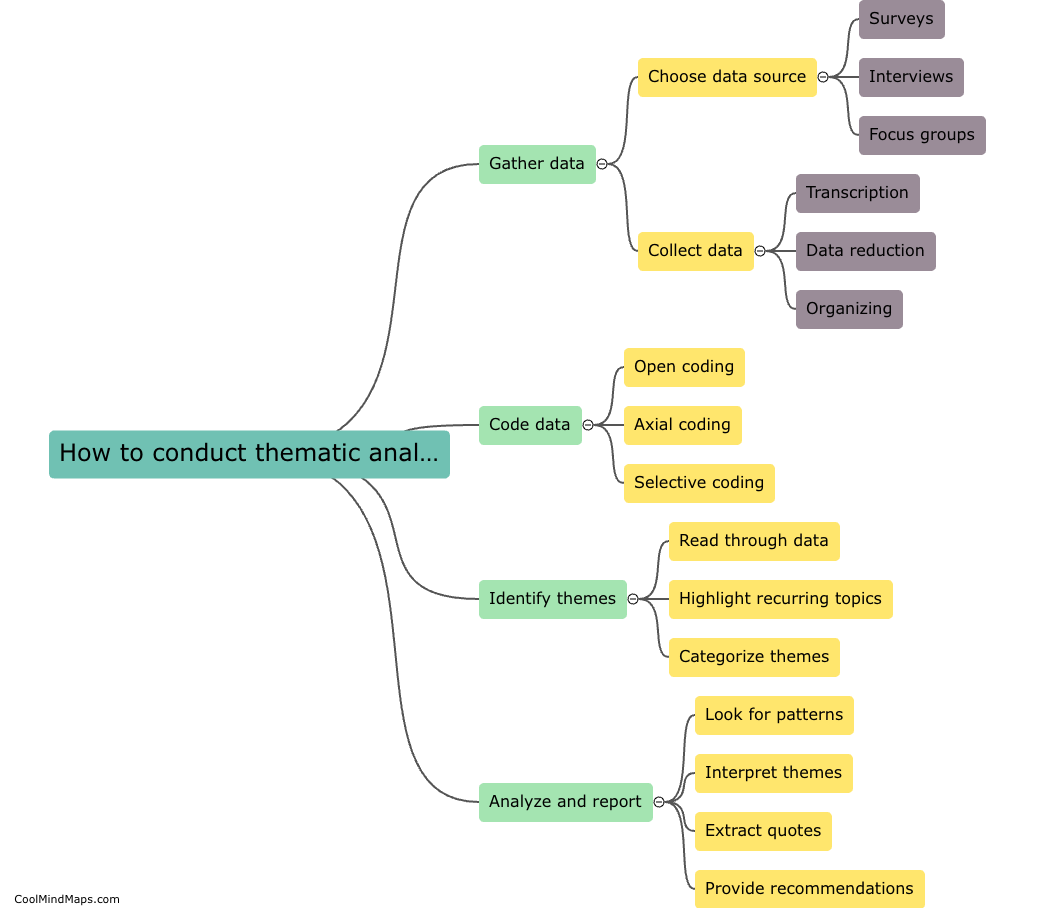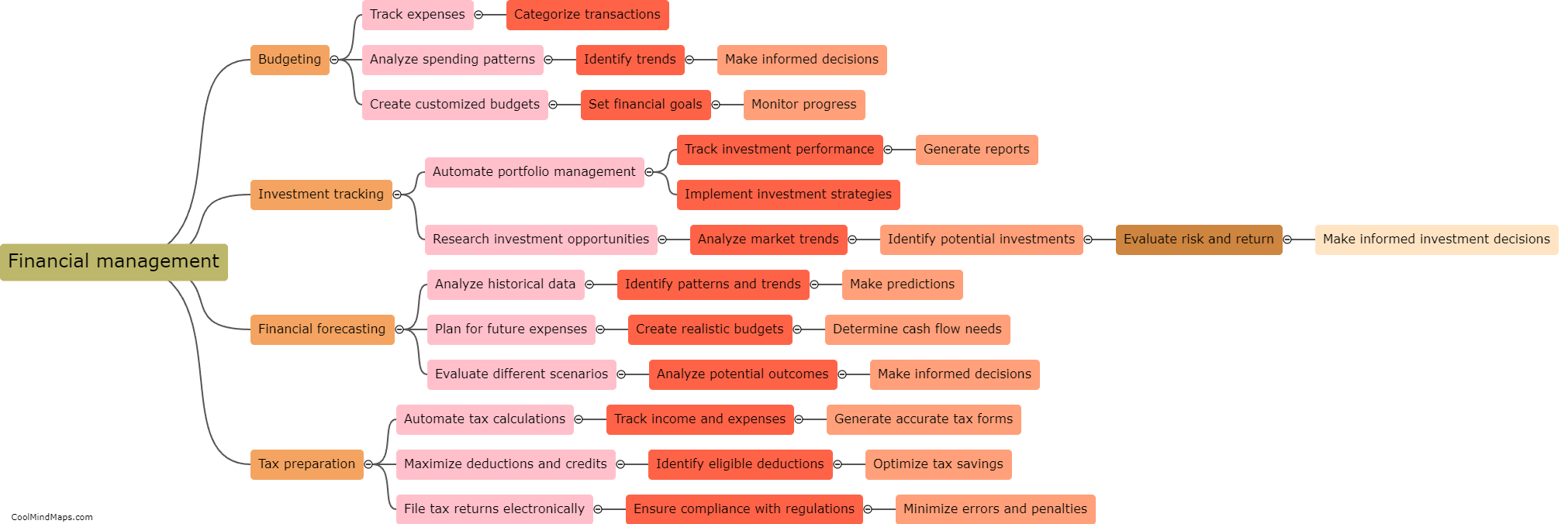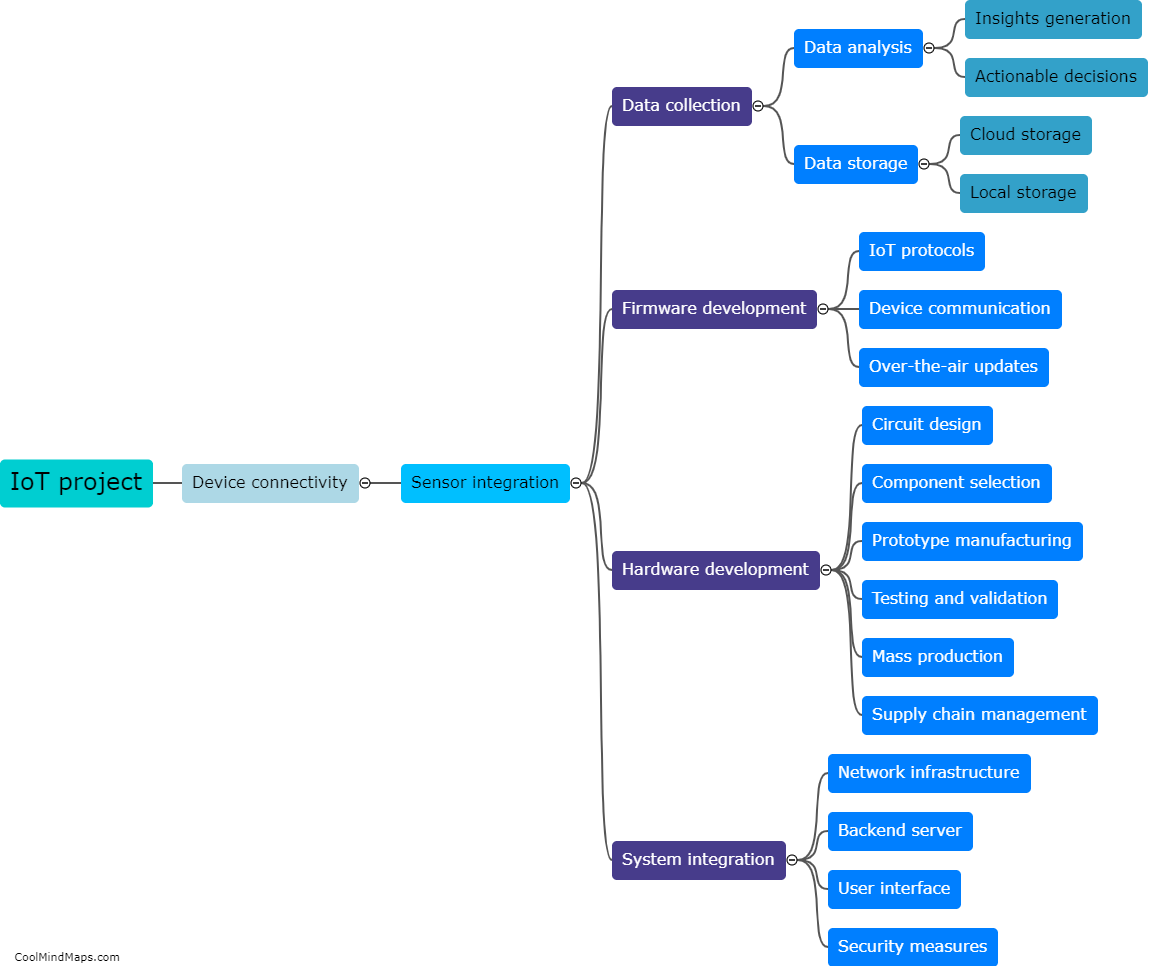How is biochemical assessment used in diagnosis?
Biochemical assessment is an important tool used in the diagnosis of various medical conditions. By evaluating different chemical components in body fluids, such as blood or urine, healthcare professionals can gain valuable insights into a patient's overall health and detect any abnormalities or imbalances. Biochemical tests can measure a wide range of substances, including enzymes, hormones, electrolytes, and metabolites, which can help diagnose conditions like diabetes, liver diseases, kidney disorders, and hormonal imbalances. These tests provide objective data that can aid in the identification of diseases, monitoring treatment effectiveness, and tracking patients' progress. The results of biochemical assessments are often interpreted alongside other diagnostic procedures and medical history to guide appropriate treatment decisions.
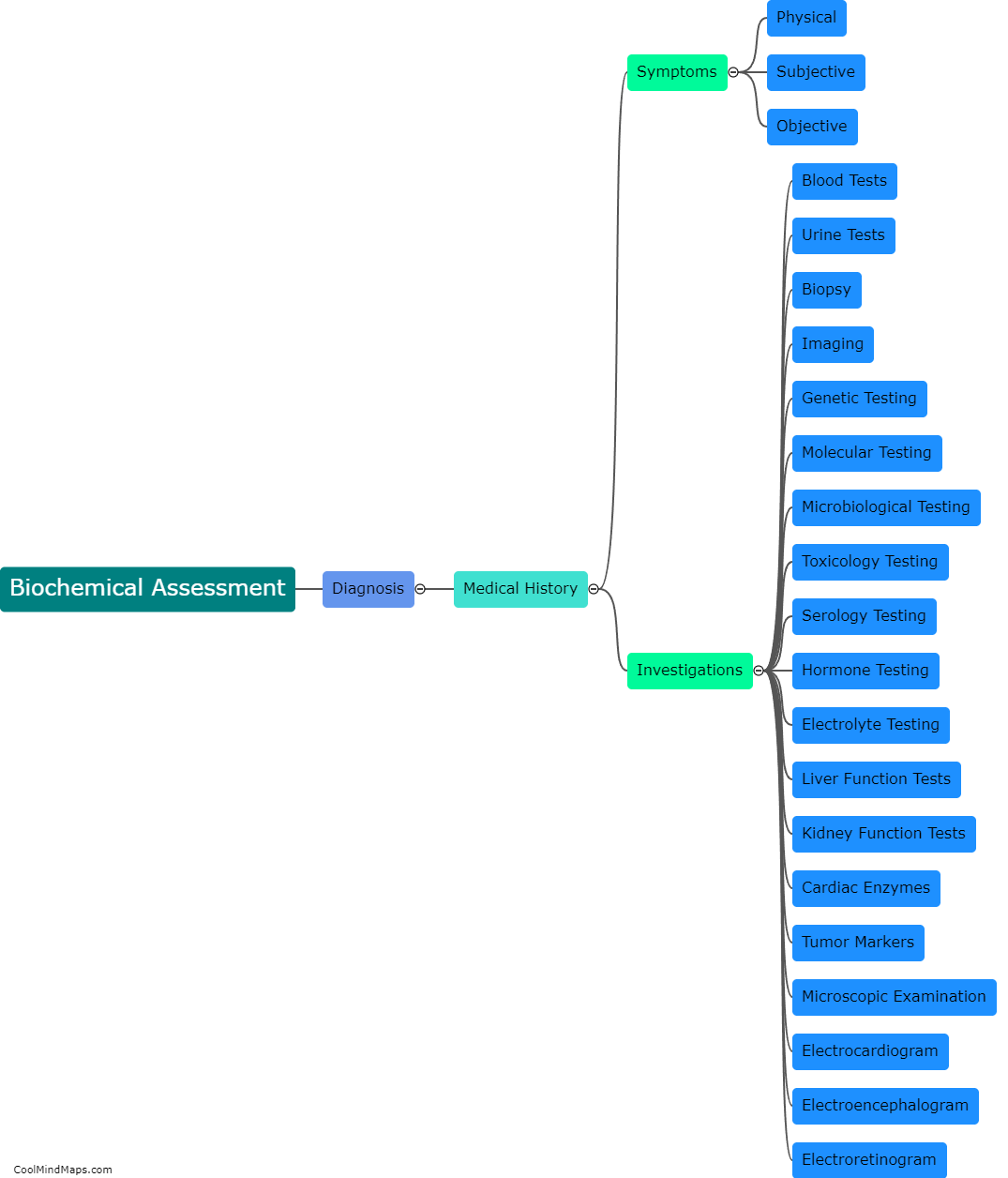
This mind map was published on 29 January 2024 and has been viewed 117 times.
